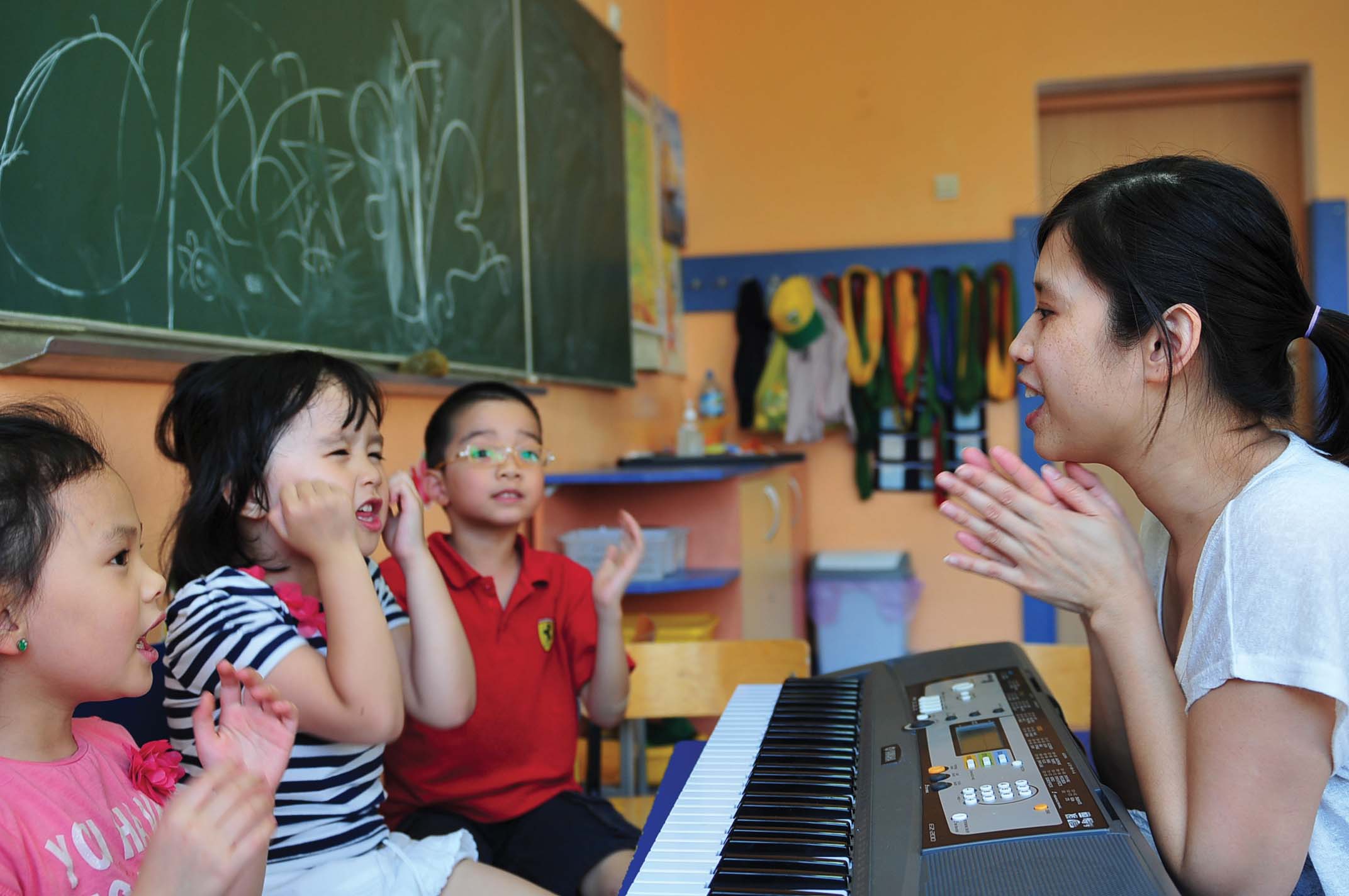HANOI – Is the defiant four-year-old boy with the family name from the British Isles and the given name from Vietnam becoming bilingual?
His one word answer to a different question from his mother warmed her Saigonese heart. “Khong,” he said, meaning “no.”
So what if he was refusing to do something she had asked him to do, like putting down the iPad or something. What mattered was not what he said but how he said it.
And perhaps he will need to speak Vietnamese if he wants to actually be Vietnamese, and not just another monolingual American like his father. That, at least, is the notion that my new friend Nhuong advanced the other day when we chatted at the Bookworm, the capital’s English language bookstore.
Nhuong, speaking English quite well, was curious about how her mother tongue was faring in my big phat extended Vietnamese-American family. All considered, I would have to say it is complicated. But it is interesting to think that, while Nhuong would surely consider my wife Vietnamese, she might not say the same about my wife’s seven younger siblings, even some who were born in Vietnam, because of their lack of fluency.
“If they can’t speak Vietnamese,” Nhuong declared, “then they really aren’t Vietnamese.” So Viet Kieus who cannot speak the native tongue, in her view, really are not Vietnamese at all.
An interesting point of view. I explained that my wife, the eldest of eight siblings, arrived in the U.S. in the first grade speaking no English. By the end of the year, she was fully fluent and served as her parents’ translator while they struggled to learn the new language. But today my wife says her Vietnamese still is not nearly as polished as the English of the Vietnam-born colleagues she manages here for an international company.
Far be it from me to judge the quality of her siblings’ Vietnamese, but I know that I have rarely heard them use it, even in conservations with their parents. The older ones, especially, seem to understand a fair amount; in addition to their parents, they spent a lot of time with theirba ngoai (maternal grandmother) and ba noi (paternal grandmother). Growing up, they all took Vietnamese lessons on Saturdays – part of the proud immigrant community’s effort to preserve their identity and culture. First-generation immigrants to America want to honor andpreserve their culture – but they know that assimilation is more important.
Certainly through the multicultural American eyes they are considered Vietnamese – Vietnamese-American, to be more precise – even if they struggle with the mother tongue. They still look Vietnamese, they still visit Little Saigon, they still eat pho ga (Vietnamese noodle soup with chicken). They are perceived as Vietnamese and perceive themselves as Vietnamese as well. Tell them they are not Vietnamese and they might take offense. Immigrants losing their mother tongue is nothing new; America is home to millions of millions of people with Spanish surnames who do not speak Spanish, and millions of Asians who only speak English.
But I get Nhuong’s point. In another week, my American-born sister-in-law will arrive. She is certainly a Vietnamese girl in America, as were many of her sorority sisters at university. She certainly knows her way around Orange County’s Little Saigon. But her Vietnamese, I am sure, is quite limited. This could be quite a culture shock experiencing the real Saigon and the one and only Hanoi for the first time. I wonder how she will feel when she needs to find a shopkeeper, say, who speaks a little English.
When we came to Vietnam three years ago, we thought the chances were good that the little guy could become fully fluent in Vietnamese. We would hire a Vietnamese nanny, maybe even put him in Vietnamese preschool. We were pleased, also, that his older brother and sister, now ages 12 and 10, would study Vietnamese in their international school.
To encourage them, I proposed a competition with a wager, promising a few bucks if they proved better at Vietnamese than the old man. The girl, 10, is far beyond my “taxi Vietnamese” and delights old folks in the Old Quarter with her rudimentary questions. But the boy, 12, has switched to Spanish because, strangely, Vietnamese is not offered in middle school. (Spanish is fine though; that was his mother’s third language.)
Still, the greatest hope lies with the little guy. He understands a lot of Vietnamese, I am told by his mother and his nanny. But he prefers English, and he is stubborn.
So when they ask him to speak Vietnamese, he usually just says that one word: “Khong!”
It is a start, anyway.

























































